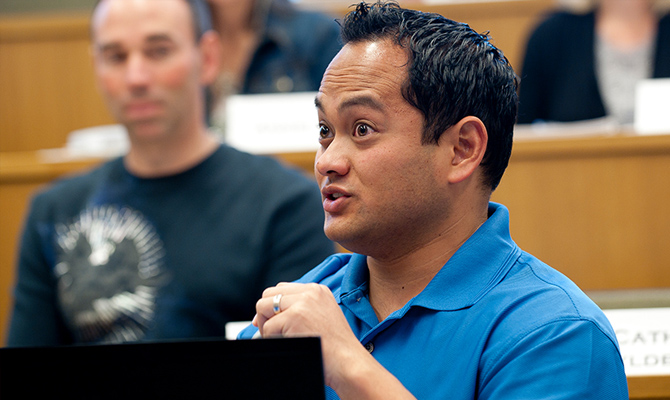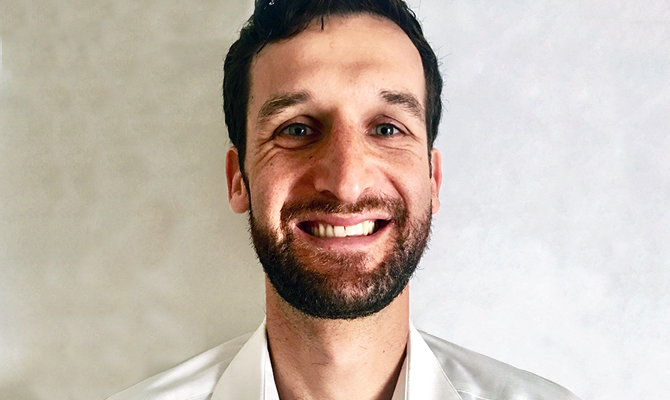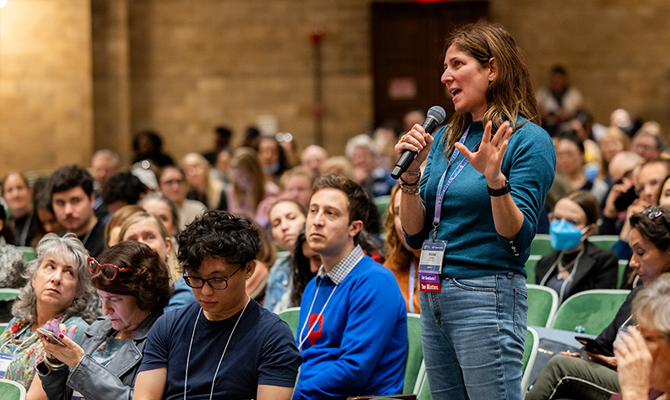by Jennifer Cory
Arrhythmogenic right ventricular cardiomyopathy is a life-threatening, inherited disease, and a leading cause of sudden cardiac death in young, otherwise healthy adolescents and adults. Through the advances of modern technology, those who receive this once-devastating diagnosis, now stand an excellent chance at survival through the use of medication and a life-saving device called an implantable cardioverter defibrillator. However, living under the peril of life-threatening arrhythmias and life-saving shocks can cause considerable psychosocial disturbances, and potentially contribute to diminished medical outcomes. Though living with a chronic, life-threatening illness poses many challenges, it is both possible and imperative that we provide those dealing with such a diagnosis the skills necessary to go beyond surviving to thriving. Borrowing heavily from the research and collaborative efforts from the field of positive psychology, Civilian Resilience Training is an empirically-informed set of interventions designed to protect patients with these diagnoses against psychopathology and promote their ability to be resilient in the face of the significant health crises that inevitably arise as a result of their disease, as well as the lesser day-to-day crises life brings. The program is designed to help diminish the negative effects of diagnosis, reduce disease symptomology, and encourage effective coping with defibrillator intervention, while enhancing psychosocial well-being and flourishing. It is hoped this program will serve as an interventional model to build flourishing among patient populations with other chronic diseases as well.
See Jen's full capstone on Penn's Scholarly Commons website.
by Paddy Steinfort
Many psychological constructs under the heading of Positive Psychology are important to the careers of athletes and other high-level performers. Grit and optimism have both been linked to performance outcomes in multiple disciplines, and interventions have been trialed to develop these factors in individuals and groups, with varying levels of success. Using an adapted version of the Penn Resiliency Program (PRP) and Master Resilience Training (MRT) programs used to train resilience in both education and military settings, we implemented a mental toughness training intervention with a group of professional football players (n = 22) and also followed a control group (n = 13) in the same team. Results show the training was effective at increasing optimism but not grit, and had a positive impact on performance over the following season that was moderated by previous performance levels. Correlations and regression models also showed that optimism and grit together were subsequently predictive of consistency and performance. We discuss the moderating effects of the player’s pre-training level of ability as well as potential leadership effects and offer recommendations for future research into the links between optimism, grit and performance.
See Paddy's full capstone on Penn's Scholarly Commons website.
by Shannon Thompson
The purpose of the following study is to explore the psychological practice and racing experience of competitive distance runners. It is proposed that a new mindset called DARE state be used to describe the mental experience of athletes when they are engaged in training that encompasses a “love of challenge,” deliberate practice, and flow state in the same workout or race. The presence of both deliberate practice and flow in the same session is a new proposition as previously these two concepts have been viewed to be opposed. Seventy-four competitive college runners completed measures that assessed deliberate practice, flow state, and athletes’ love of challenge after intense practices and races. We found that runners do experience aspects of deliberate practice and flow during the same session when both practicing and racing. In fact, deliberate practice and flow scales were found to be positively correlated. The second hypothesis of this study, which stated that DARE state scores would be positively correlated with running performance improvement was supported. DARE state scores were positively related to athletes’ subjective ratings of performance, coaches’ ratings of athlete improvement and the degree to which athletes were meeting their coach’s expectations. DARE state was also positively correlated with objective measures of running improvement, but this failed to reach significance. In sum, we found evidence that both deliberate practice and flow can be experienced by athlete’s in the same training session, and that athletes who experience both of these phenomena in the same session frequently may improve more quickly than athletes who do not.
See Shannon’s full capstone on Penn's Scholarly Commons website.
by Danny Torrance
Positive psychology can help individuals do the right thing. Doing the right thing is embedded in Aristotle’s definition of human flourishing (eudaimonia), which entails both being good and feeling good. This paper does not attempt to provide a formal definition of what is good but argues that discussing goodness in abstraction is important for any examination of the good life. Acting well is not always easy and we often fail to do what is right despite our best intentions. This is why we need practical wisdom (phronesis). Practical wisdom is defined as a master virtue that allows one to be morally perceptive, to deliberate between courses of action, and to make a reasoned choice that is aligned with worthwhile ends. It guides individuals towards human excellence by exerting our strengths in moderation to establish good habits, which ultimately forms a good character. Practical wisdom is needed to help individuals deliberate between internal and external goods and to find balance between conflicting aims. This paper argues that practical wisdom is necessary for any individual or professional to become the best that he/she can be and to truly flourish. Additionally, practical wisdom has the potential to bolster other constructs in positive psychology, including resilience, and is ripe for future research endeavors. By adopting practical wisdom as a master virtue, positive psychology can fulfill its original aims of making the lives of all people better and of building flourishing communities.
See Danny’s full capstone on Penn's Scholarly Commons website.
by Katie Wallace
This paper introduces positive organizational ritual—defined as a formalized and enduring intervention that utilizes symbolism and collective experience to elevate individuals and unite them under a shared life-giving purpose and organizational identity. The positive use of ritual in organizational settings might offer value to businesses who hope to increase revenue and profitability while benefiting the lives, communities, and ecosystems they impact. Through its deeply meaningful and experiential nature, collective ritual can elevate individuals and build organizational cohesion and momentum. The first part of the paper provides an overview of relevant insights into individual and organizational flourishing drawn from the fields of positive psychology and positive organizational scholarship. In this section, a model for whole-system flourishing and excellence among individuals, organizations, and other life-systems is proposed as it provides a foundation that ritual will build upon. In the second part, positive organizational ritual is defined and its ability to weave whole-system flourishing is reviewed. Characteristics of positive organizational ritual are outlined in this section, possible varieties of rituals are suggested, and future directions for research are identified. Finally, because ritual has historically woven cultures that were disempowering and even potentially dangerous, cautions for applying ritual in the workplace are provided.






